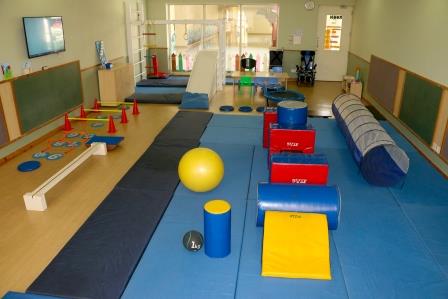
Special Education (also known as Special Needs Education, Aided Education or Vocational Education) is the practice of educating students with special educational needs in a way that addresses their individual differences and needs.
We, at Pathseekers strongly believe in inclusion and have been practising inclusive culture since its inception. All the buildings are fully accessible to everyone including use of wheelchairs. We use “Mainstreaming” approach or Inclusive education to provide special education services to students who require it. Mainstreaming refers to the practice of educating students with different abilities in classes with other students during specific time periods based on their skills.
The Special Education Cell offers programme for the children within the age group of 2 - 18 years with mild to moderate difficulty/disability in the areas like cognitive, physical, speech, language, communication, behavioural & learning problems and challenges. Special attention is given for the holistic development of children.
We also provide:
- Early childhood intervention
- Integrated education
- Inclusive education
- Remedial education
At Pathseekers, we assist the children with difficulties and disabilities like:-
- Deficient Cognitive Functioning (Intellectually Disabled)
- Orthopaedic Impairment
- Specific Learning Disability (dyslexia, dyscalculia, dysgraphia etc. )
- Slow Learning
- Speech/Language Disability
- Cerebral Palsy
- Epilepsy with Associate Conditions
- ADHD (Attention Deficit Hyperactive Disorder)
- Autism Spectrum Disorder
Inclusive Education
Inclusion is not TOLERANCE, it’s ACCEPTANCE without any questions!
The school follows an inclusive education system which imparts real learning opportunities to all groups, regardless of their abilities. A welcoming and diverse educational environment helps in promoting wellbeing of students. Differently abled students are supported in a manner that they get equal access and enjoy their right to education.
Inclusive Education Facilities
The school provides special facilities for differently abled students to provide them opportunities to acquire education and to bring them into the mainstream of society.
- Infrastructure
- Special Education Room
- Occupational Therapy Room
- Ramps with railing
- Rest Rooms
- Facilities
- Hearing Aids
- MSIED Kits
- Clutches
- Calipers
- Wheel Chairs
- Tricycle
- Cerebral Palsy Chair
- Scribes for examination
- Medical Help
Special Educators consult medical professionals as per the students’ need or disability.
Intervention
Early Identification and Intervention is the key component of Special Education Programme. In Pathseekers, early intervention is carried out, right from the age of 2 years. The child is assessed on various developmental goals to bridge the learning gap. Intervention program is planned according to the individual needs of children. Therapies are also planned accordingly. Evaluation is done every six months.
Identification - Class teachers observe and identify concerns regarding students’ behavior or academic performance.
Classroom Observation - Formal and Informal observation is done in different situations by School Counselors and Special Educators to identify the learning and developmental delays.
Parent Interview - Parents of the concerned children are interviewed for aspects related to developmental delays, medical conditions etc. in order to facilitate planning accordingly.
Implementing Assessment Tool - In order to identify developmental delays, assessment tools are administered along with involvement of parents. Assessment is also done on the basis of age appropriate developmental goals.
Individualized Educational Programs (IEPs’) – IEPs’ are made according to students’ need with focus on their abilities.
Classroom Management Strategies - It includes modification in classroom setup and techniques to improve students’ overall performance.
Peer Counseling sensitizes and counsels peers for academic, social or behavioral support.
Individualized Family Service Plan (IFSP) is provided to the child’s family for child’s future goals and needs which includes emotional, personal, medical, educational and recreational needs.
Therapy is a form of rehabilitation that aims to help resolve intellectual, sensory, emotional, and physical issues of children. Therapies such as occupational therapy, speech therapy, behavior therapy, music therapy, play therapy etc. are deployed for each student according to individual needs of the child.
Evaluation - Students are evaluated on the basis of IEP

